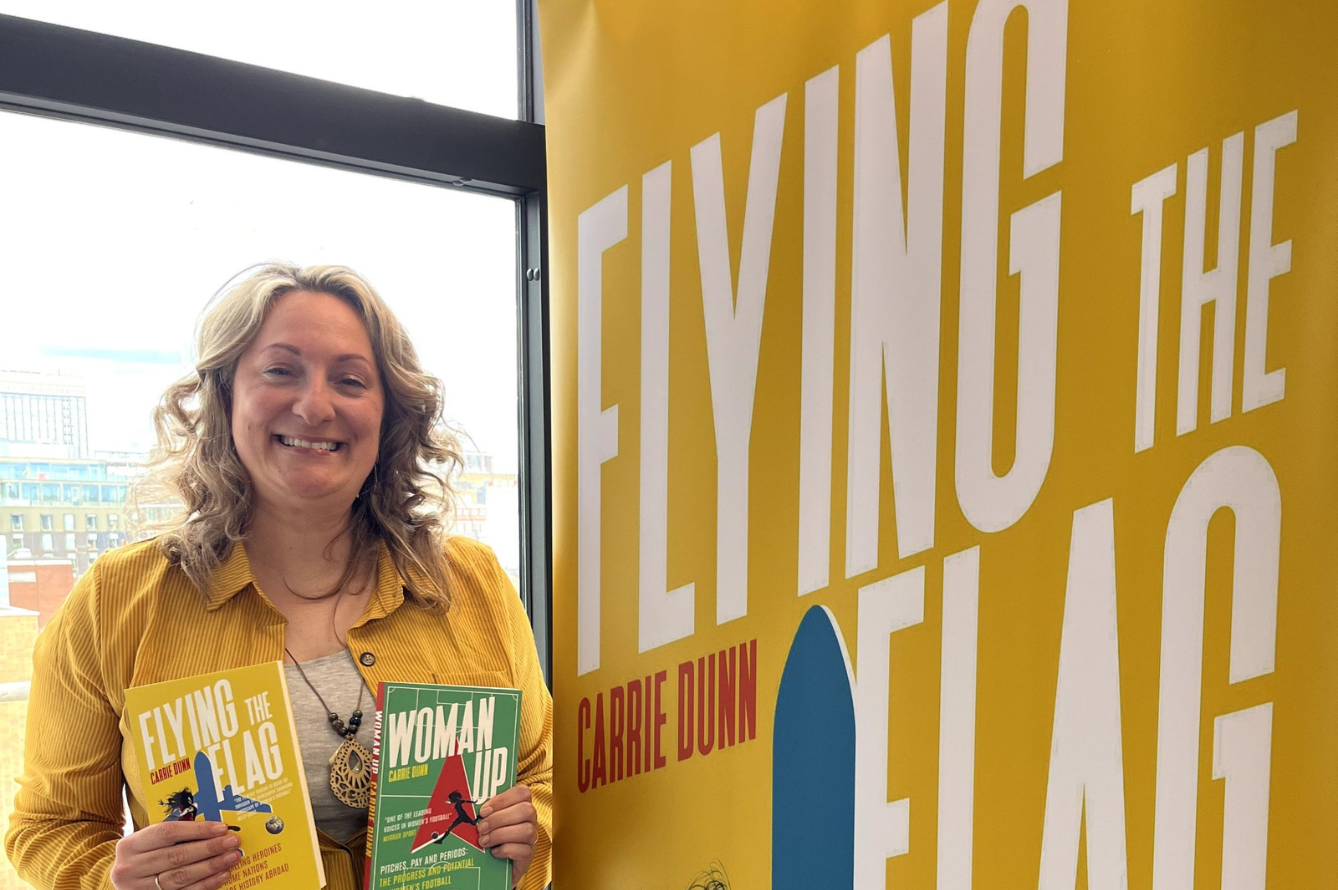Women are breaking barriers in football’s boardrooms, and few embody that shift more than Michele Kang. Frequently seen in the stands, the philanthropist and majority owner of London City Lionesses, Washington Spirit, and OL Lyon is emblematic of the cultural shift reshaping power in the women’s game. Read on to find out about Carrie Dunn, a woman shaping the world of female sport.
Yet, it is no secret that women remain underrepresented in the boardrooms where the biggest decisions are made, particularly at elite clubs and governing bodies. In a sport long dominated by men, progress towards inclusivity is being made – but it comes with a double burden. Women must fight not only historical stigma but also work twice as hard to have their achievements recognised.
That same struggle plays out beyond the pitch. In journalism, women have faced persistent stereotypes questioning their authority and knowledge of the beautiful game. But what could be a clearer demonstration of expertise than writing an entire book on football?
Meet Carrie Dunn.
The Birth of The Network
The meteoric rise of women’s football in the UK owes much to the Lionesses and their history-making triumphs in the summers of 2022 and 2025. Behind every moment of success lies a deeper story, and Dunn has been one of the voices telling it. Following England’s breakthrough victory in 2022, she published Unsuitable for Females: The Rise of the Lionesses and Women’s Football in England. The book delves into the long, often overlooked history of the women’s game, weaving together the struggles and resilience that paved the way for today’s heroes.
As far as introductions go, Carrie’s is hard to top:
“I’m a sports writer by trade, covering women’s football for a couple of decades. I also hold a PhD in sports sociology, specifically women’s experiences of sport, so I have a network in academia and women’s football research. In addition, I’ve done volunteer work – including grassroots football, the “B football” mentoring, and I was previously Deputy CEO of a football community interest group.”
Earlier this summer, something as remarkable as her published book was set in motion: the creation of the Women’s Independent Club Network. At its core lies a clear rationale that justifies its very existence.
Talking about the beginnings, Carrie added:
“I wanted to set up a network, or some facility really, to support independent women’s clubs – not just in England, but UK-wide. The challenges aren’t always identical, but there’s enough in common to make it worthwhile having that conversation.
About a year ago, I reached out to clubs across England, Northern Ireland, Scotland and Wales that I knew were playing at national level, to ask if they’d be interested in being part of it. I didn’t go public at that point — it was just the first tentative steps, reaching out to independent clubs I knew, and it’s grown from there.”
Independence From Men’s Football Matters
“I’ve worked in women’s football for many years, and I’ve seen the development in England in particular – the push towards professionalism, with big clubs taking on women’s teams and investing in them. But I’ve also seen a lot of women’s clubs fall by the wayside, particularly when they’ve become financially reliant on a men’s club. When a men’s club needs to reduce its budget, the women’s team is often the first off the priority list.”
Modern examples from as recent as last season are Manchester United, whose part owner Sir Jim Ratcliffe went on record to highlight the priority of the men’s teams in the midst of cost-cutting measures, and disregard which saw the United Women’s team use a portable changing room for an extended period of time.
This isn’t a new phenomenon either. Charlton Athletic’s women’s team were disbanded in 2007, despite being one of the strongest sides in the country at the time, their fate sealed when the men’s club was relegated from the Premier League. Notts County Ladies, once part of the Women’s Super League, folded in 2017, leaving players and staff without contracts or security. In both cases, the women’s teams were treated as expendable when finances grew tight.
“We saw this happen at Charlton about 15–20 years ago, and at Notts County in 2017. At the same time, there’s a strong tradition of independent clubs. Women running their own clubs has been happening for well over a century – since the FA banned women’s football and women just carried on organising themselves.”
That tradition is exactly what Dunn hopes to strengthen through the Women’s Independent Club Network.
“The way I’d describe the network: an informal group of women’s independent football clubs with senior teams competing in elite national leagues across the UK. We share best practice, discuss issues and offer mutual support in what can be a challenging football landscape at the top of the game.
We’d welcome contact from any other women’s independent clubs in the UK who play in elite national senior leagues, who aren’t affiliated with or part of men’s clubs, and who’d like to join. The intention is for the network to serve their needs. If other clubs are eligible and want to join, they’re welcome. It’s not a secret network – the more the better.”
Figures like Carrie Dunn aren’t just here to take part. They’re here to use leadership and networking skills to empower women’s football at the elite level.



